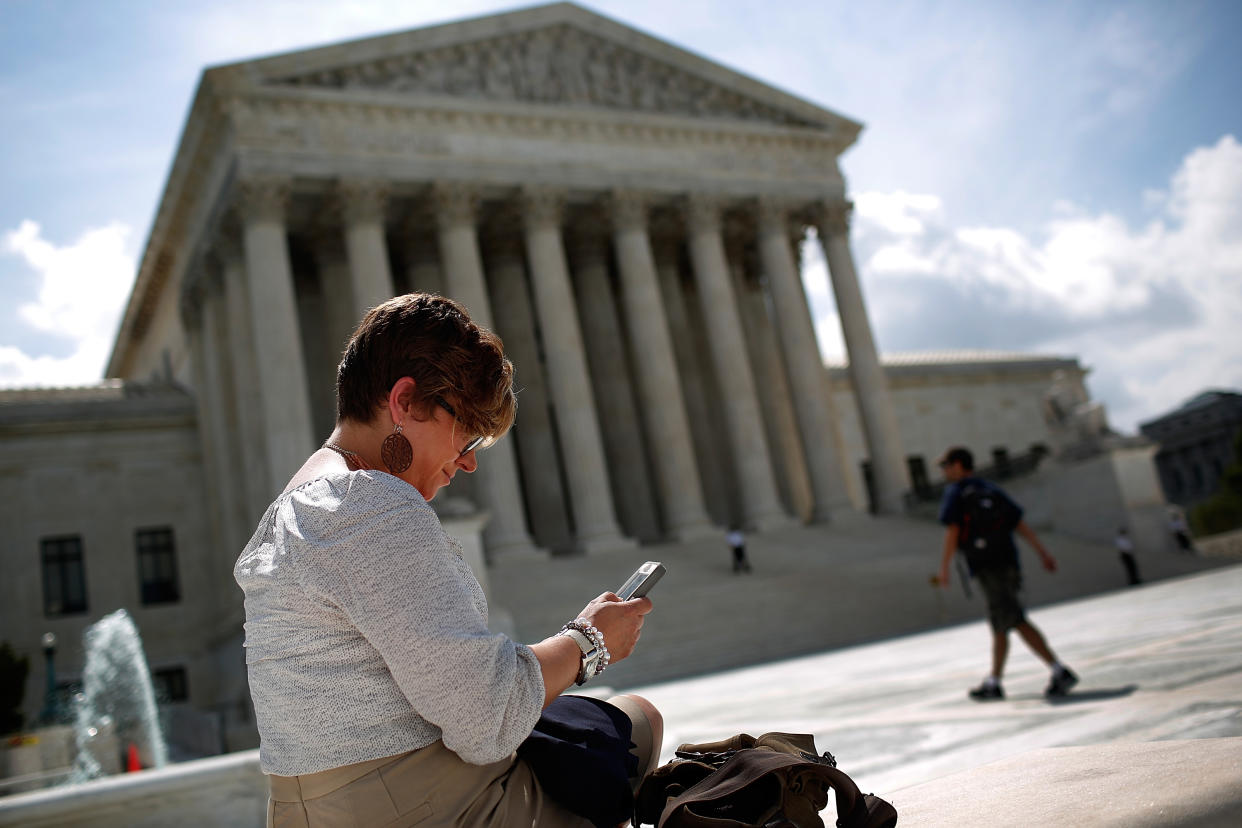Supreme Court weighs whether politicians blocking constituents is constitutional

- Oops!Something went wrong.Please try again later.
- Oops!Something went wrong.Please try again later.
Given the near ubiquity of social media in our modern, hyper-connected lives, it's understandable that the once-impermeable barrier between public and private lives has become increasingly nebulous and ineffective — for both better and for worse. A comment on a public Facebook page from a personal account can lead to professional consequences offline for the user, while at the same time relationships that began as online chatter often transition to meaningful real-life friendships. For politicians — people chosen to represent, lead, and participate in their respective communities all at once — maintaining that equilibrium and separation between personal and professional can be especially tricky, as the United States Supreme Court learned this week.
On Tuesday, justices heard oral arguments for two cases that cut to the heart of the question of what politicians can and can't do online. The cases, Lindke v. Freed and O’Connor-Ratcliff v. Garnier, each deal with the same essential dilemma: is it constitutional for public servants to block people from their personal social media accounts, and where does the law draw that line between "personal" and "professional" accounts to begin with? As such, both cases resemble the 2018 ruling against then-President Donald Trump, in which a federal judge said that blocking constituents from his widely-used @RealDonaldTrump Twitter (now called X) account was unconstitutional. While the Supreme Court ultimately declined to rule on challenges to that case after Trump lost the 2020 presidential election, Tuesday's hearing could set significant new precedents for how, and when, politicians interact with the very people they represent.
To block, or not to block? That is the question.
In both cases, the Justices struggled to "define which accounts and pages should be deemed official and open on equal terms to all readers and commenters," as opposed to personal — and therefore subject to much less oversight — outlets. That line, however, "proved difficult to draw" Politico reported, highlighting the justices' interest in ensuring that even "obstreperous constituents" still have access to important government accounts and updates. In the case of James Freed, the City Manager of Port Huron, Michigan, petitioner Kevin Lindke argued that during the COVID pandemic, Freed posted important municipal information on his personal Facebook page that couldn't be found elsewhere, although Freed claimed otherwise. "Therefore," Lindke told PBS News Hour, "the protection of the First Amendment kicked in."
Pushing back against the notion that personal social media accounts should be treated the same as private property in the real world, Chief Justice John Roberts drew laughter during the hearing by describing the accounts as "just the gathering of the protons or whatever they are." The justice also questioned whether it was appropriate to have an "old concept applied to what we always say is some new phenomenon?"
In the case of Poway Unified School Board members Michelle O’Connor-Ratcliff and T.J. Zane — both of whom blocked local parents Christopher and Kimberly Garnier from the personally run Facebook accounts created by the board members during their run for office, the fact that the pages "included information related to their work on the school board" shouldn't matter, the duo argued, according to SCOTUS Blog. Instead, the standard should be "whether the State requires, controls, or facilitates" the account, "none of which happened here." Asked whether comparing the blocking to a politician telling an irate constituent who accosts them at a grocery store to call their office, instead, an attorney for the Garniers countered that "in that instance the politician is "clearly off duty." However, on a Facebook page, "if they say they're doing their job, then, yes, I would say the starting point is they're state actors" and subject to the First Amendment rules thereof.
"First Amendment interests on both sides"
The challenge with both these cases is the fact that the public figures and the blocked constituents both have rights that need to be protected. Justice Elena Kagan "hit the nail on the head on what the justices were facing," NewsHour Supreme Court analyst Marcia Coyle explained. While public officials "have every right" to engage in the mundanities of most social media posts about dogs and food and family, individuals have a similar right to "be able to access government information that may be important to their lives."

